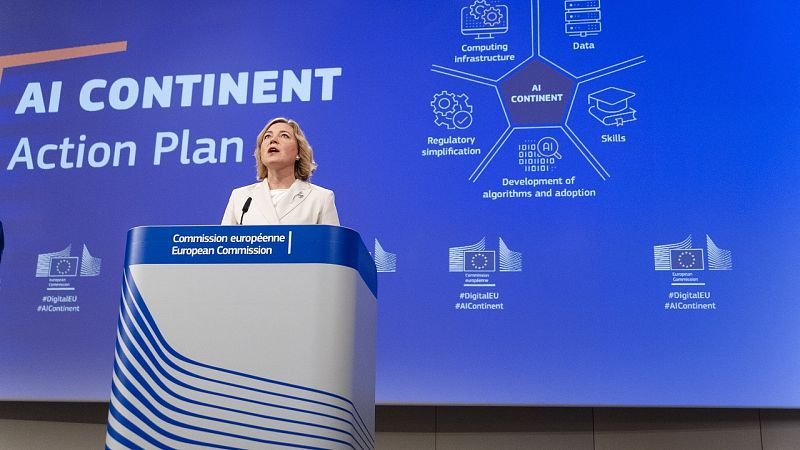
The European Commission will next week stage a workshop in an effort try to convince companies to sign the Code of Practice on general-purpose AI (GPAI) before it enters into force on 2 August, according to a document seen by Euronews.
The Code of Practice on GPAI, a voluntary set of rules, aims to help providers of AI models, such as ChatGPT and Gemini, comply with the EU’s AI Act. The final version of the Code was set to come out early May but has been delayed.
The workshop, organised by the Commission’s AI Office, will discuss the final code of practice, as well as “benefits of signing the Code”, according to the internal document.
In September 2024 the Commission appointed thirteen experts to draft the rules, using plenary sessions and workshops to gather feedback.
The process has been criticised throughout, by tech giants as well as publishers and rights-holders concerned that the rules violate the EU’s Copyright laws.
The US government’s Mission to the EU sent a letter to the EU executive pushing back against the Code in April, claiming that it stifles innovation. In addition, Meta’s global policy chief, Joel Kaplan, said in February that it will not sign the Code because it took issue with the then latest version.
An EU official told Euronews in May, that US companies “are very proactive” and there was sense that “they are pulling back because of a change in the administration”, following the trade tensions between the US and EU.
Euronews reported last month that US tech giants Amazon, IBM, Google, Meta, Microsoft and OpenAI have called upon the EU executive to keep its Code “as simple as possible”, to avoid redundant reporting and unnecessary administrative burdens”.
A spokesperson for the European Commission previously said the Code will appear before early August, when the rules on GPAI tools enter into force.
The Commission will assess companies’ intentions to sign the code, and carry out an adequacy assessment with the member states. The EU executive can then decide to formalise the Code through an implementing act.
The AI Act – which regulates AI tools according to the risks they pose to society – entered into force gradually last year, however, some provisions will only apply in 2027.







